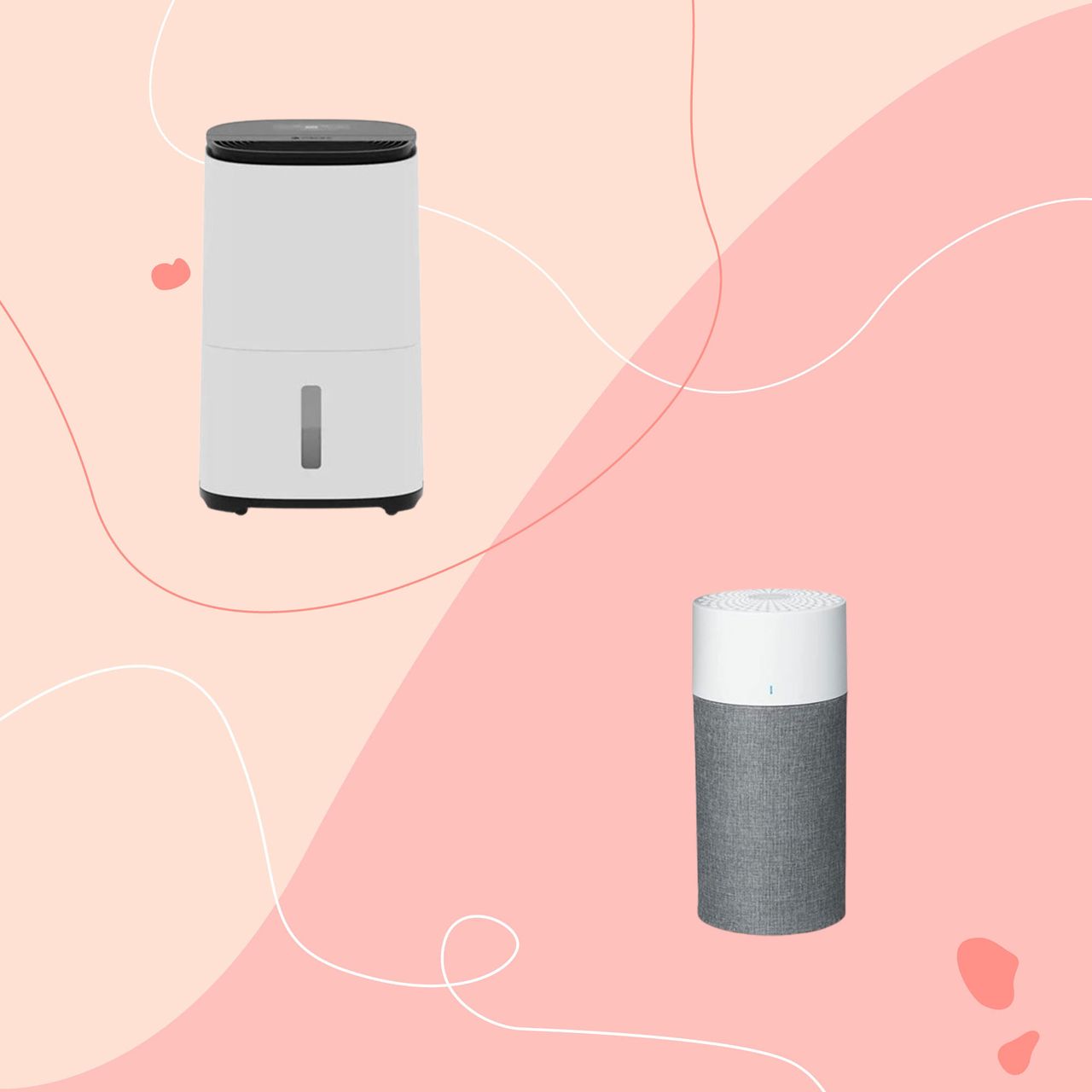
If you’re wondering whether an air purifier or a dehumidifier is better, you’ve come to the right place. As Ideal Home’s resident air quality, it’s literally my job to know the ins and outs of these appliances - including which homes (and which people inside of them) they suit best.
Yes, you probably don’t need me to tell you that both the best air purifiers and the best dehumidifiers are becoming increasingly popular. It seems as though more and more of us are concerned about the air we’re breathing and the overall health of our homes and family. But the reality is that air purifiers and dehumidifiers are very different appliances with very different uses.
That’s why you’ll find everything you need to know about the air purifier vs dehumidifier debate below. From their overall usefulness to their affordability, all of the information below will help you choose the right option for your home.
Air purifier vs dehumidifier
Crowned the 'best overall' air purifier in our guide, this model is suitable for spaces up to 48m² and is equipped with an effective and highly efficient HEPA filter.
The number one dehumidifier in this guide, the MeacoDry Arete Two offers smart capabilities and is even equipped with a laundry mode so you can dry your washing inside during the colder months.
Air purifier vs dehumidifier: What's the difference?
While you could say that air purifiers and dehumidifiers look alike, and they work in similar ways (after all, they suck in the surrounding air before releasing cleaner air back into the room), they still serve different purposes.
As Dr. Jaspreet Dhau, VP of R&D at Molekule explains, ‘Air purifiers are designed to reduce allergen particles in the air, such as dust mites, pet dander, pollen or mould spores.’ They can also remove other pollutants such as smoke and VOCs. They do this by capturing these harmful airborne particles in a filter and trapping them so they’re not released back into the air.
In fact, air purifiers with high-grade HEPA filters - like our top-rated model the Blueair Blue Max 3250i Air Purifier - can filter 99.97% of airborne particles down to just 0.1 microns in size - which is pretty impressive, as most air purifiers only promise to filter down to 0.3 microns. In most cases, these filters then need to be changed regularly to maintain maximum efficiency.
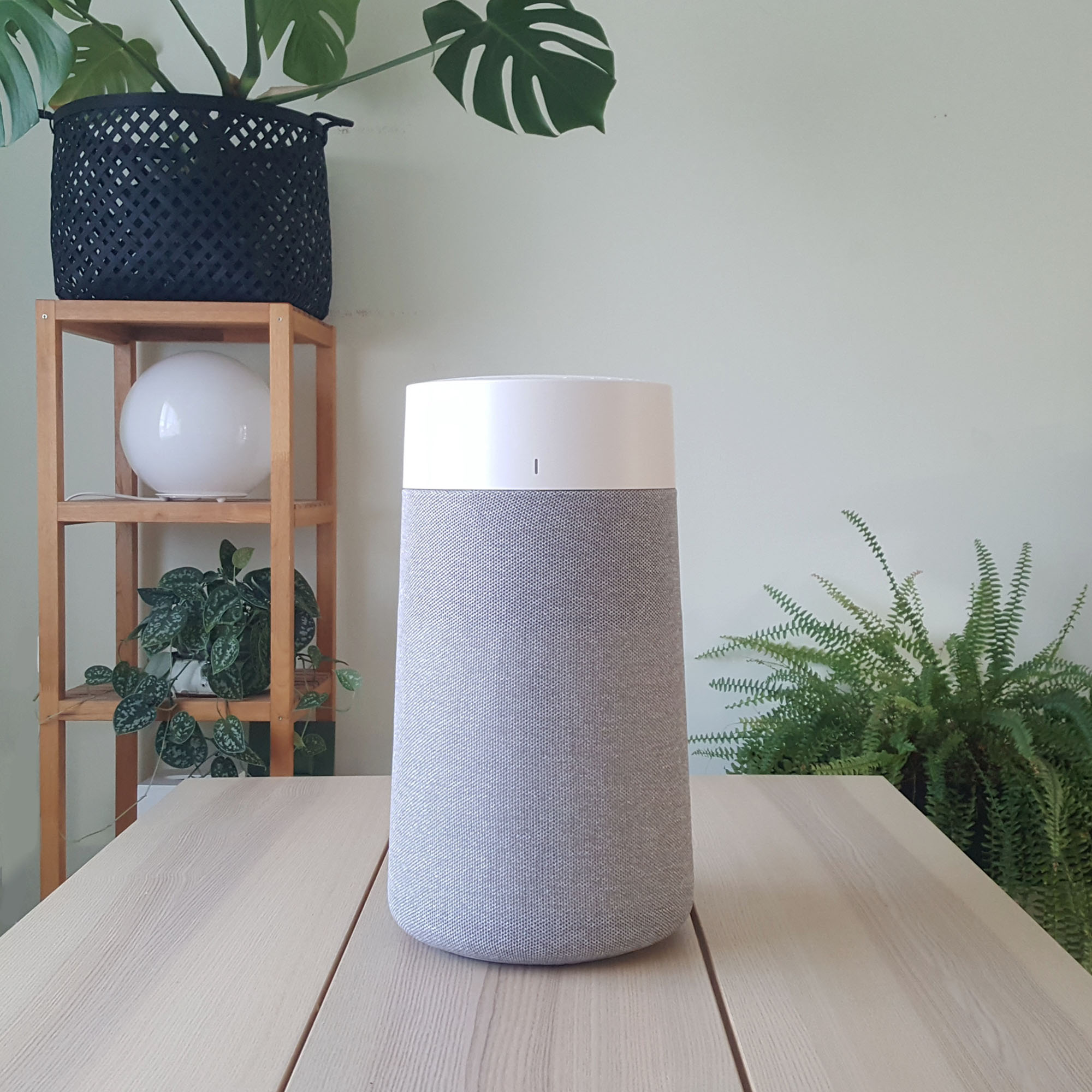
Dehumidifiers don’t trap airborne particles, though. Instead, they work hard to reduce the humidity of a room by removing excess moisture from the air. There are a lot of different dehumidifiers to choose from, too.
As Chris Michael, Managing Director at Meaco, says, 'There are four types of dehumidifier sold to the domestic market in the UK - Compressor, desiccant, peltier and absorbent salt-based (calcium chloride or silica gel).’
This can make choosing a dehumidifier daunting, but the most common type of dehumidifier sold in the UK is a compressor model. Chris says, 'A compressor-based dehumidifier draws the air in from the room over a filter and passes it over some cold coils similar to the coils on a fridge. As the coils are cold, water condenses and drips into a bucket. The air is then reheated to room temperature and blown back out of the dehumidifier.'
Just remember that when you buy a dehumidifier, you need to make sure you buy the right size for your home. Not only that, but you need to remember to empty the tank when it’s full.
Air purifiers vs dehumidifiers: Which is better for your health?
In the grand scheme of things, air purifiers and dehumidifiers are both impressive additions to your home. Because of this, it’s hard to say whether one is better than the other - especially when it comes to your health, as it’s very unique to everyone.
On the one hand, air purifiers can help hay fever and those who struggle with allergies as a result of airborne particles such as dust and pet dander. In many cases, air purifiers can also help those with weakened immune systems, as high-quality models also help to capture viruses and bacteria.
In fact, our Senior Digital Editor tested the Levoit Sprout Air Purifier in her young daughter’s room, who is susceptible to chest infections. After using it for just two weeks, she found that it significantly eased her daughter’s nighttime coughing and helped her breathe easier throughout the day.
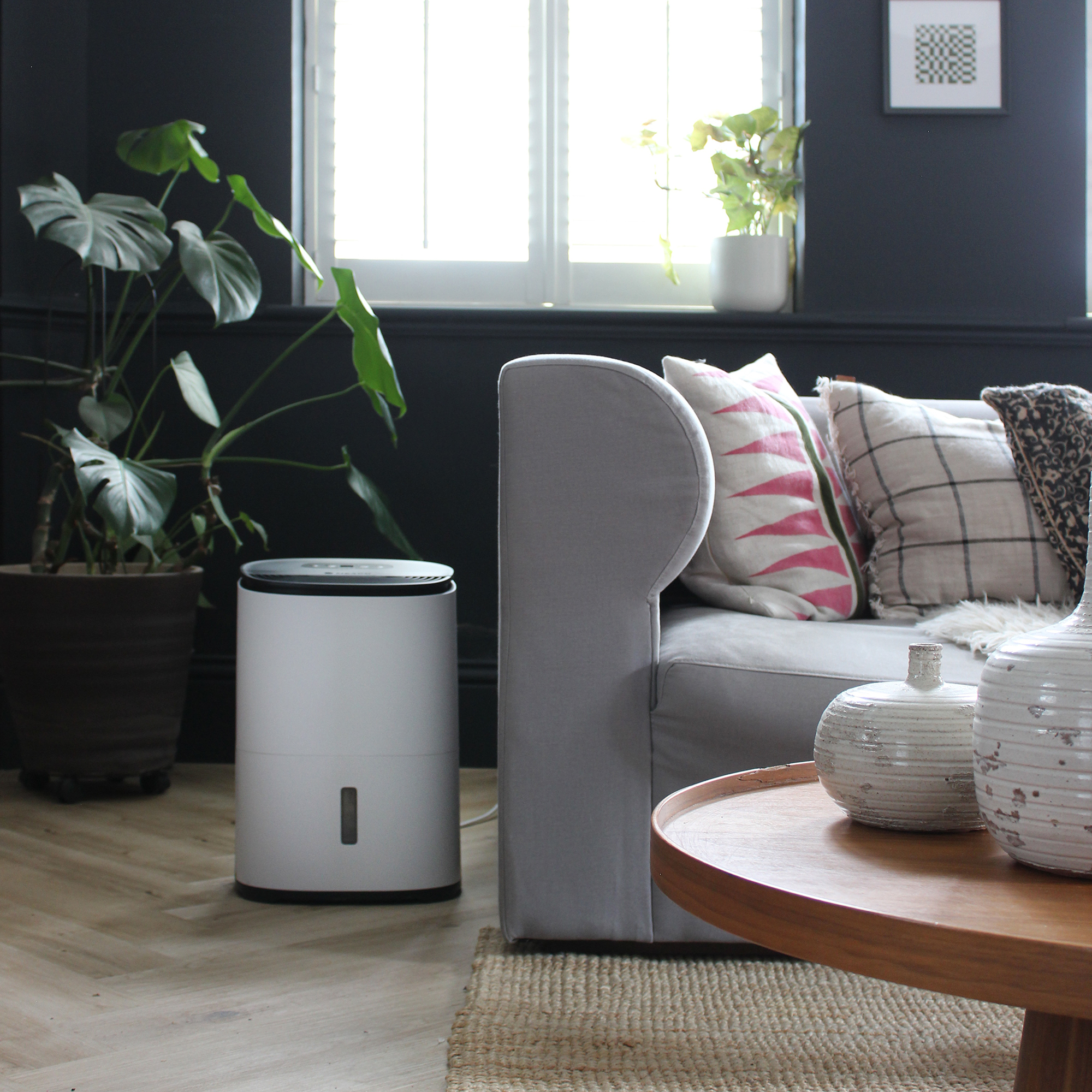
And while a dehumidifier cannot get rid of mould per se, it can stop it from damp, condensation and mould getting worse or from appearing in the first place, so can still have a positive impact on someone’s health.
To be more specific, using a dehumidifier to remove excess moisture from the air is very beneficial for those with a weakened immune system or breathing difficulties, as the excess moisture and mould spores can wreak havoc on those with asthma or other respiratory conditions. That’s one of the reasons
Air purifiers vs dehumidifiers: Which is better for your home?
When it comes to the health of your home, there is a clear winner in the air purifier vs dehumidifier debate. After all, excess moisture can have disastrous consequences if not dealt with as soon as possible. It can even lead to structural damage in your home.
Whether you’re looking to tackle the excess moisture in your bathroom with a bathroom dehumidifier or you’re trying to stop damp in a bedroom, a dehumidifier can not only reduce this condensation and the opportunity for mould growth but can also work hard to maintain the humidity in your room.
Nicholas Auckland, energy expert at Trade Radiators, says, ‘A dehumidifier can be a real hero when it comes to banishing mould and condensation, and I always recommend purchasing one to anyone struggling with excessive condensation, mould and high humidity levels. Almost nothing else but making structural, expensive changes can completely fix this problem, so a dehumidifier is the perfect option if you're not in the right place to spend thousands.’
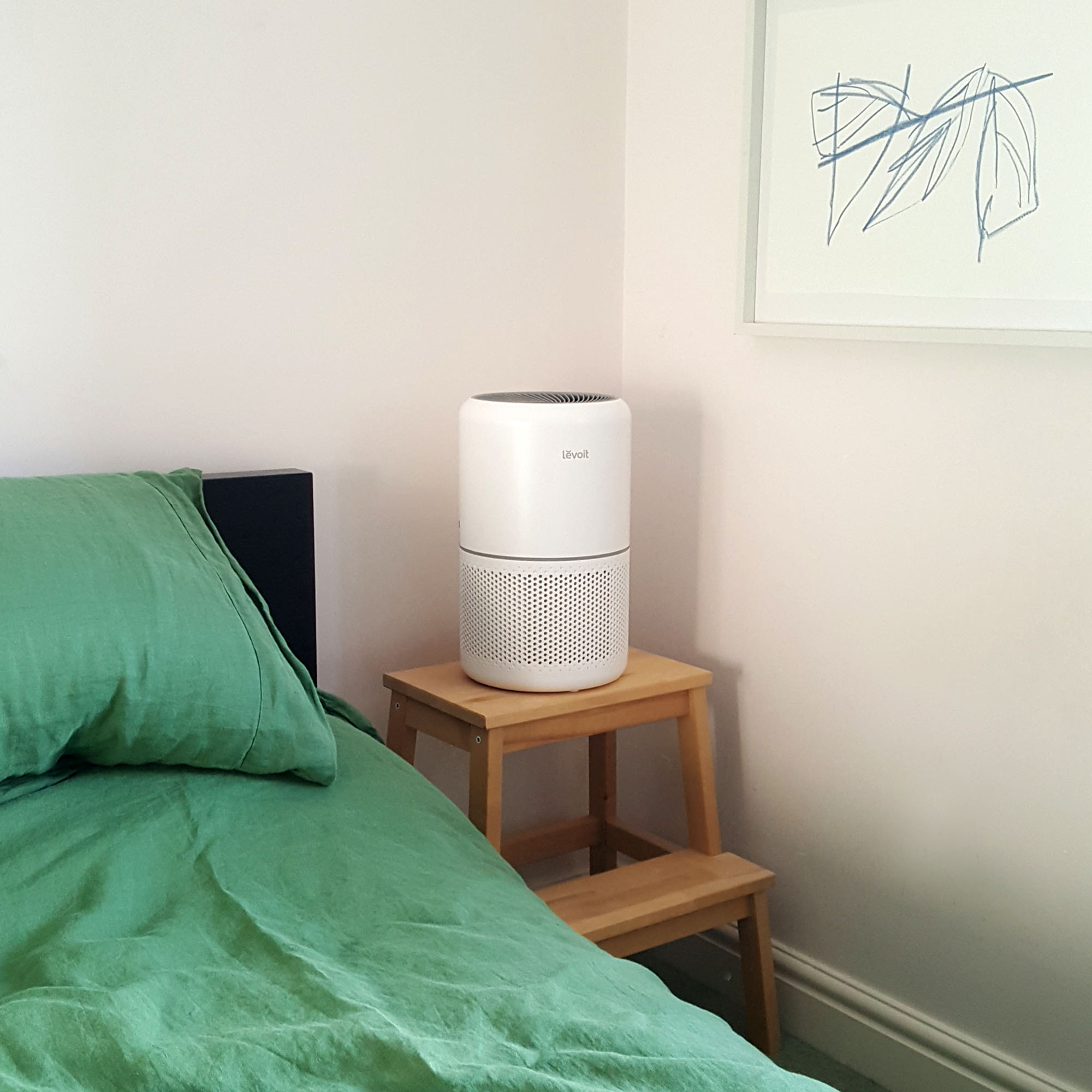
By using a dehumidifier, you can create an environment where you and your home can live together harmoniously without any mould breakouts or costly maintenance bills. You just need to make sure that you avoid these dehumidifier mistakes if you want to keep your home mould-free.
On the other hand, air purifiers benefit the people inside the home more than the home itself. Sure, an air purifier can remove mould particles from the air and even reduce the prevalence of dust and smoke stains, but ultimately, they just don’t trump dehumidifiers when it comes to maintaining the integrity of your house.
Air purifiers vs dehumidifiers: Which is more affordable?
When looking at the affordability factor of air purifiers and dehumidifiers, there are two things we need to take a closer look at; the price of the appliance itself and then the price of running said appliance.
Let’s start with air purifiers. The most affordable air purifier we’ve tested (and loved) so far is the £29 IKEA UPPÅTVIND Air Purifier. It’s very much basic in its form and function, and it’s fair to say that IKEA isn’t exactly known for being leaders in air quality. But if you’re looking for another cheap air purifier from a reputable air quality brand, the Blueair Blue Pure 511 Air Purifier will still only set you back £99.
At the other end of the spectrum, we have the most expensive air purifier on our list, which is the Dyson Purifier Big+Quiet Formaldehyde, which retails at £899.99. However, it’s important to note that the Dyson purifier is so much more than an air purifier. It’s designed for larger spaces and can also serve as a multifunctional fan at the same time.
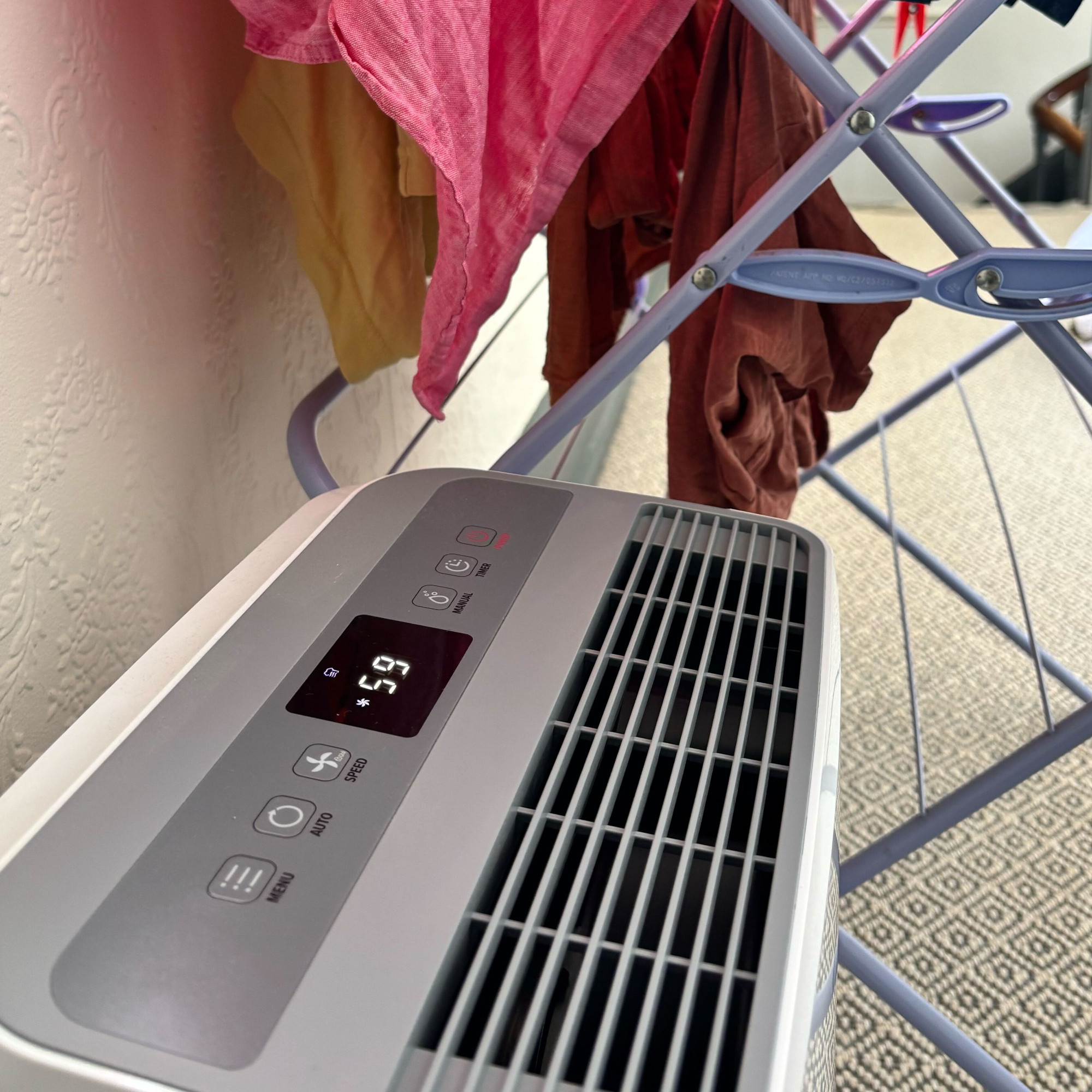
But what about dehumidifiers? Well, they’re certainly a little cheaper. There are so many dehumidifiers under £100, and our firm favourite has to be the ProBreeze 1500ml Mini Dehumidifier (£54.99 at Amazon). it’s a budget way to keep your home mould-free - but it’s important to note that there’s a limit to that.
The ProBreeze is capable of reducing moisture in a 15m² area, so you might need to buy a couple if you want to tackle your whole house. Alternatively, you could opt for a budget dehumidifier that has a larger capacity, like the Dryzone Dehumidifier & Air Purifier, which retails at £149.99.
In terms of the top price for dehumidifiers, you could pay hundreds if you really wanted to. But in a normal house without any major moisture or mould issues, you shouldn’t need to buy something that pricey.
Air purifiers vs dehumidifiers: Which is cheaper to run?
While it’s clear to see that dehumidifiers are often cheaper to buy, it’s also important to note how much these different appliances cost to run.
Although you can read more about air purifiers on our cost to run an air purifier page, this ultimately depends on the current energy price cap and the wattage of the air purifier. At the time of writing, the current price cap (until 31st December 2025) is 26.35 pence per kWh.
The same can be said for how much it costs to run a dehumidifier. All you need to do is multiply the kWh of the appliance by 26.35 to work out how much it’ll cost you per hour.
Final verdict: Which one do you need?
The debate between these two appliances has been a tough one, as both air purifiers and dehumidifiers have their perks. They’re both very different but offer similar positive qualities that everyone should employ at home.
Only you will be able to choose a clear winner based on the needs of your own home. Joshua Warren, dehumidifier and air purifier expert at AO.com says: ‘The choice between an air purifier and a dehumidifier is a complex decision. With many struggling with the cost of heating their homes, households can use dehumidifiers to fight mould and mildew. They are terrific at absorbing the moisture left by damp conditions and help to protect your home from this recurring.’
‘Looking ahead to the warmer months, this is truly where an air purifier comes into its own – particularly for those suffering from allergies. If you’re perhaps a person who struggles with hay fever, look out for appliances with a HEPA filter as these models are specialised in improving air quality by removing allergens.’
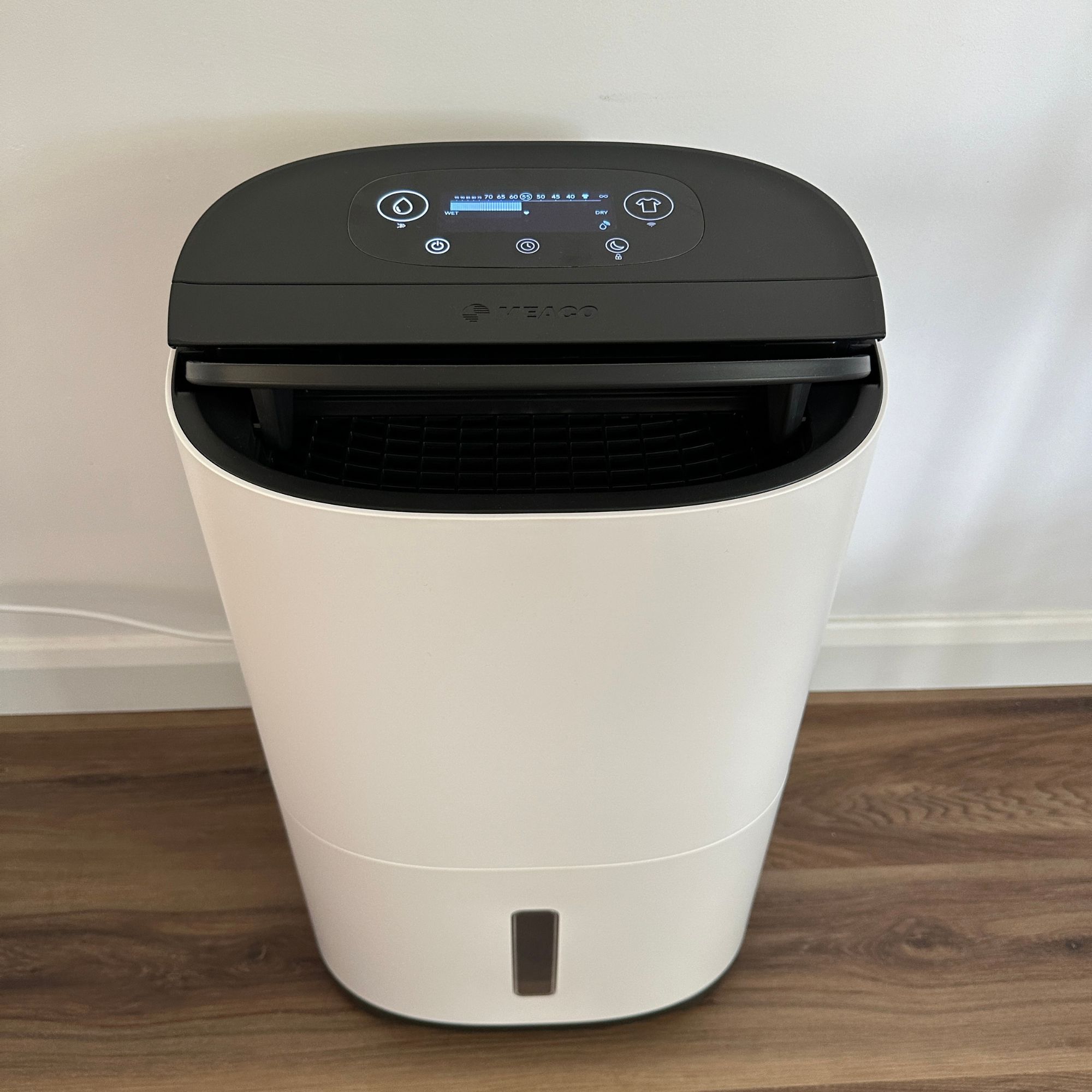
If you can stretch to it, we would recommend investing in both appliances for a happy and healthy home. We’d suggest using both of these appliances throughout the year to maximise the benefits.
Of course, we understand that buying two appliances, and finding the space for them might not be an option but there is a third (and undoubtedly the best) option - and that’s using both at the same time within a single appliance.
The MeacoDry Arete Two Dehumidifier and Air Purifier offer the best of both worlds. We found in our review that it combines the benefits of these two products in one stylish appliance.
Chris Michael, Meaco’s managing director, says, 'By addressing humidity and air cleanliness, a dual unit helps protect the fabric of the home and the health of its occupants. It helps those with respiratory health issues, allergies and other health concerns caused by damp and poor air quality.'
'As a dual-use appliance, it can be switched to air purification mode during the warmer months, which offers extra protection from the increased levels of pollen and pollutants that can come into the home from opening windows and doors.'
So, this could be a good option for those who can't decide between an air purifier or a dehumidifier.
This appliance is another 2-in-1 dehumidifier and air purifier, with the ability to tackle excess moisture in your home while also filtering out nasty airborne particles in rooms up to 15m2.
If you don't want to spend a fortune on a dehumidifier, this budget-friendly option is one of our favourites. It's more powerful than it looks, and can be tucked away easily when not in use.
The filter in this air purifier will last up to five years, so you don't have to worry about replacing it every six months. It's also extremely reactive and will instantly up the ante if your home's air quality drops.
FAQs
Is a dehumidifier or air purifier better for mould?
Ultimately, both can help. If you don’t have mould and want to prevent it from rearing its ugly head in your home, it’s better to opt for a dehumidifier as this will control the humidity levels in your house to keep condensation and damp at bay.
If you already have mould, it’s important to note that a dehumidifier can’t get rid of it, but it can stop it from getting worse. An air purifier can also remove mould spores from the air, making your home fresher and stopping them from spreading around your house.
That’s why most experts would suggest using both if you’re worried about mould in your house.
Does an air purifier dehumidify a room?
No, air purifiers don’t remove excess moisture from the air. They are designed to remove toxins from the air but cannot help with the humidity of a home.
However, you can buy a two-in-one appliance that is both an air purifier and a dehumidifier, which can be a handy option for those looking to take advantage of both products.
Consider what the priorities for your home are before taking the plunge and investing in one of these handy gadgets.







